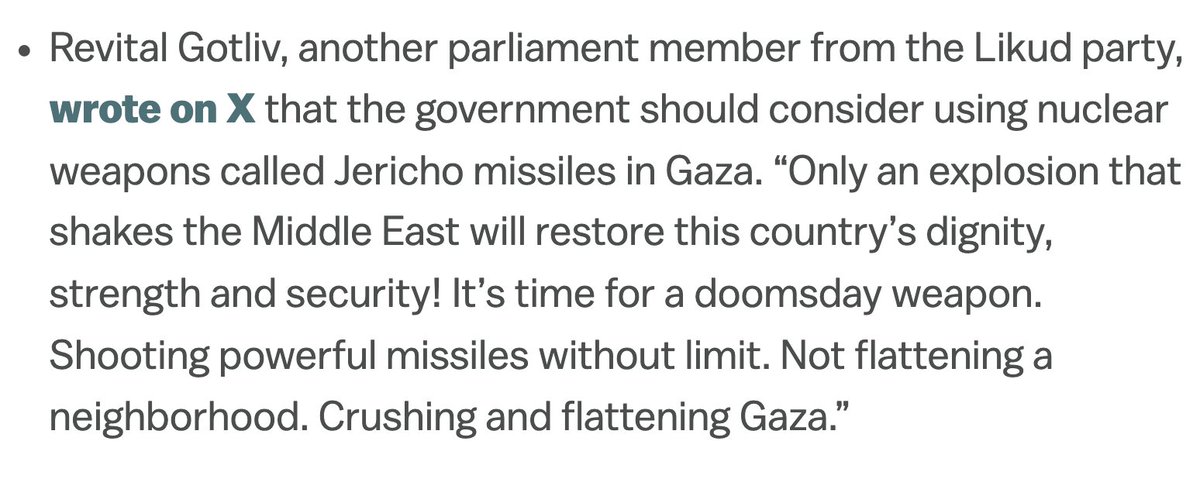You’ve probably been hearing lots about Israel — but not about Jews with roots in the Arab and Muslim world. They’re over half of Israel’s Jewish population, yet the American media barely covers them.
So let me tell you a story about my family. 🧵 1/18
vox.com/world-politics…
So let me tell you a story about my family. 🧵 1/18
vox.com/world-politics…
My dad’s side is from Iraq, where Jews lived for 2,000 years and were deeply integrated into Arab society. Jews spoke Arabic and made up 1/3 of Baghdad’s population. We were everywhere — in parliament, the judicial system, the music scene. Here’s what my family looked like. 2/18 

My mom’s side is from Morocco, where Jews cultivated deep friendships with Muslim neighbors — so deep that, when I visited Morocco and found a 90-year-old man who’d known my family 70 years ago, he got so excited that he shouted my grandfather’s name over and over with glee. 3/18
Does this mean life was always good for Jews in the Middle East and North Africa? Of course not. There were humiliations, attacks, and expulsions. But scholars will tell you that, on average, Jews in Arab and Muslim lands fared better than Jews under Christendom in Europe. 4/18
Things changed in the 1940s, as Arab nationalism, Jewish nationalism, & more created tectonic shifts. In Baghdad, the Nazi-inspired Farhud attack killed over 175 Jews. After Israel was founded the Arab world turned on its Jews. My grandparents fled Iraq & Morocco for Israel. 5/18
But my grandparents were discriminated against when they got to Israel. They were the wrong kind of Jew — too brown, too “uncivilized,” too “Oriental.” The ruling Ashkenazi (European) elite sent them to live in a poor development town called Beit Shemesh. 6/18
Back in Morocco & Iraq, my grandparents had Arab friends. Some would say they were Arabs themselves! The term Arab Jews is anathema to many today, but pick up an old newspaper like الشمس or a book by Murad Farag & you’ll see for yourself that some Jews called themselves that 7/18
As I note in my article, most would've simply called themselves “Jewish Iraqis,” “Moroccan Jews,” etc. But some called themselves Arab Jews, as primary sources clearly show. When they got to Israel, Ashkenazim invented a new label for them all: Mizrahim (meaning Easterners). 8/18
In Israel my grandparents had to shed Arabness to be accepted. As a teen I was confused since I was fluent in Hebrew yet couldn’t understand the language they used in private. They said it was “marocayit” (Moroccan). It took years to realize what language they really meant. 9/18
Over time, many families like mine moved to the political right. When I got to college, I told my mom I’d be studying Arabic. “Good!” she said. “It’s important to know the language of your enemy.”
By her generation, “Arab” could only mean “enemy.” 10/18
By her generation, “Arab” could only mean “enemy.” 10/18
And while the Ashkenazi left oppressed families like mine, the right courted them. My family’s town, Beit Shemesh, became a stronghold for the Likud party (now led by Netanyahu), which promised them a way out of poverty. Is it any wonder so many Mizrahim are now right-wing? 11/18
But there were resisters. Mizrahi intellectuals linked discrimination against them to that against Palestinians. Orientalism was being used to cast both as inferior. So Mizrahim & Palestinians formed a solidarity movement, producing joint magazines & joint street protests. 12/18
In 1953 Arabic-speaking intellectuals created the magazine al-Jadid, which published poetry & fiction by Mizrahim & Palestinians. The editors said they wanted to shine a light on anti-Mizrahi & anti-Palestinian discrimination “out of the spirit of Arab-Jewish solidarity.” 13/18
Mizrahi Jews also felt an affinity with African Americans. The Ashkenazim referred to Mizrahim as “shvartse khaye,” black animals. So they reclaimed their “blackness” & found inspiration in the US civil rights struggle. In the 1970s, they formed the Israeli Black Panthers. 14/18
Despite Golda Meir complaining that “they are not nice people” the Panthers got the government to shift resources to poor Mizrahim. Panther leader Charlie Biton met with members of the Palestinian Liberation Organization to rally together those victimized by Israeli policy. 15/18
As @AsafShaloo writes in his book, “The Panthers criticized Israel’s settlement policy and demanded negotiations toward a peace deal with the Palestinians. In the late 1970s, this advocacy took the form of protests in West Bank settlements.”
Israel worked to suppress them. 16/18
Israel worked to suppress them. 16/18
Some people have asked me about my sources. They’re all linked in my article, but here are 3 great books I recommend if you want a deeper dive. Also, with Passover coming up, check out the Israeli Black Panthers Haggadah c/o @jewishcurrents!
17/18 jewish-currents.myshopify.com/collections/je…

17/18 jewish-currents.myshopify.com/collections/je…

Our history is there for whoever is ready to discover and digest it.
כָּל דִכְפִין יֵיתֵי וְיֵיכֹל, כָּל דִצְרִיךְ יֵיתֵי וְיִפְסַח
Here's my full article.
18/18vox.com/world-politics…
כָּל דִכְפִין יֵיתֵי וְיֵיכֹל, כָּל דִצְרִיךְ יֵיתֵי וְיִפְסַח
Here's my full article.
18/18vox.com/world-politics…
• • •
Missing some Tweet in this thread? You can try to
force a refresh








